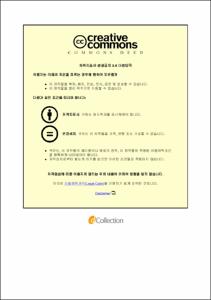가족친화제도와 가족친화적 조직문화가 조직시민행동 및 이직의도에 미치는 영향: 한국과 중국의 비교를 중심으로
- Abstract
- This study attempts to examine the effects of family-friendly programs and family-friendly organizational culture on organizational citizenship behavior and turnover intention, based on the results of existing studies indicating that family-friendly programs and family-friendly organizational culture could have negative effects on work-family conflict, and work-family conflict could have positive effects on turnover intention. This study also attempts to examine what’s the difference of those effects between Korea and China.
The data for empirical study is collected from the survey in both Korea and China. 145 female workers in Korea and 196 female workers in China were asked to respond to the questionnaires measuring the variables mentioned above. In order to find out the relationship among the variables, multiple regression analysis was used by 18.0 SPSS program.
The results of this study can be summarized as follows. First, the independent variables such as financial support, flexible work schedules and family friendly atmosphere negatively(-) affected the work-family conflict in Korea, but none of family-friendly programs affected the work-family conflict in China. Second, work-family conflict has no effects on organizational citizenship behavior, but support of boss and colleagues positively(+) affected organizational citizenship behavior in both Korea and China. And, in Korea flexible work schedules positively(+) affected organizational citizenship behavior. Third, work-family conflict positively(+) affected turnover intention in Korea but has no effects in China. Finally, the result showed that the work-family conflict has no mediating effect between independent variables and outcome variables in China, but has a full mediating effect between flexible work schedules and turnover intention in Korea.
Based on the above results, this study suggested the government and company to provide more effective family-friendly programs, especially the flexible work schedules. In addition, more boss and colleagues’ supports also been suggested.
This study comes to conclusion that the effects of family-friendly programs on work-family conflict were different across two countries, and the effects of family-friendly organizational culture, work-family conflict on turnover intention were also different in Korea and China. Second, family-friendly organizational culture could reduce work-family conflict, and support of boss and colleagues could improve organizational citizenship behavior. In both Korea and China flexible work schedules could reduce turnover intention.
Keyword: family-friendly programs, family-friendly organizational culture, organizational citizenship behavior, turnover intention, work-family conflict, mediating effect, flexible work schedules, family friendly atmosphere
- Issued Date
- 2015
- Awarded Date
- 2015. 8
- Type
- Dissertation
- Publisher
- 부경대학교 대학원
- Affiliation
- 부경대학교
- Department
- 대학원 경영학과
- Advisor
- 김영조
- Table Of Contents
- 목 차
Abstract ⅳ
제1장 서론 1
제1절 연구의 배경 1
제2절 연구의 목적 3
제2장 이론적 배경 4
제1절 가족친화제도 4
1. 가족친화제도의 개념 4
2. 가족친화제도의 유형 5
제2절 가족친화적 조직문화 10
1. 가족친화적 조직문화의 개념 10
2. 가족친화적 조직문화의 유형 12
제3절 일-가정 갈등 15
1. 직장과 가정영역에 관한 이론 15
2. 일-가정 갈등의 개념 17
3. 일-가정 갈등의 유형 18
제4절 조직시민행동 21
1. 조직시민행동의 개념 21
2. 조직시민행동의 유형 22
제5절 이직의도 24
1. 이직의도의 개념 24
2. 이직의 유형 25
제6절 조절변수에 대한 고찰 26
1. 가족의 지원 26
제3장 연구 방법 27
제1절 연구모형 27
제2절 가설 설정 28
1. 가족친화제도와 일-가정 갈등 28
2. 가족친화적 조직문화와 일-가정 갈등 28
3. 일-가정 갈등과 조직시민행동 29
4. 일-가정 갈등과 이직의도 30
5. 가족지원의 조절효과 31
6. 일-가정 갈등의 매개효과 32
제3절 측정도구 34
1. 가족친화제도 34
2. 가족친화적 조직문화 34
3. 일-가정 갈등 35
4. 조직시민행동 35
5. 이직의도 35
6. 가족의 지원 36
제4절 자료의 수집 및 분석방법 38
1. 표본의 구성과 자료수집 38
2. 분석방법 38
제4장 실증분석 39
제1절 일반적 통계결과 39
1. 표본의 인구 통계적 특성 39
2. 타당성 검증 42
3. 신뢰도 검증 45
4. 변수들의 기술 통계량 45
제2절 상관관계 분석 47
제3절 가설검증 51
제5장 결론 68
제1절 연구의 결론 68
제2절 연구의 시사점 70
제3절 연구의 한계점과 향후 연구방향 72
참고문헌 73
설문지(한국어) 83
설문지(중국어) 89
- Degree
- Master
- Files in This Item:
-
-
Download
 가족친화제도와 가족친화적 조직문화가 조직시민행동 및 이직의도에 미치는 영향: 한국과 중국의 비교를 중심으로.pdf
기타 데이터 / 1.4 MB / Adobe PDF
가족친화제도와 가족친화적 조직문화가 조직시민행동 및 이직의도에 미치는 영향: 한국과 중국의 비교를 중심으로.pdf
기타 데이터 / 1.4 MB / Adobe PDF
-
Items in Repository are protected by copyright, with all rights reserved, unless otherwise indicated.